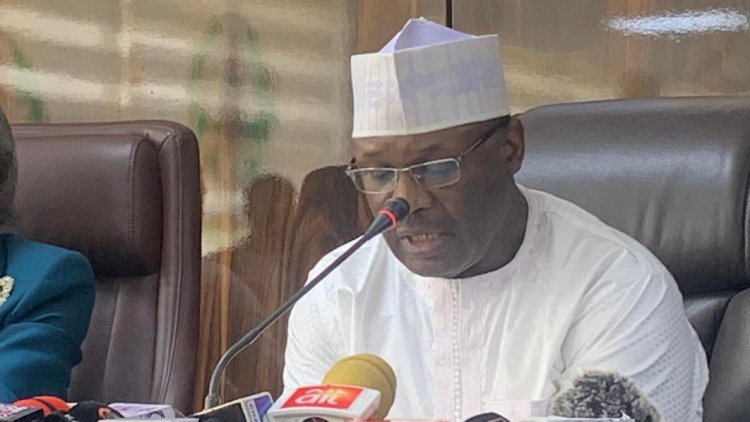Publish accounts, financial transactions of political parties, SERAP urges INEC
By Silver Nwokoro

Socio-Economic Rights and Accountability Project (SERAP) has urged Chairman of the Independent National Electoral Commission (INEC), Prof. Mahmood Yakubu, to urgently examine the financial books and transactions of political parties and make the findings public.
It urged the nation’s chief election gatekeeper to publish the accounts and balance sheets of the political parties submitted by INEC to the National Assembly since 2015.
The group also charged the electoral umpire to provide details of the guidelines and steps it is taking to prevent vote buying in the forthcoming gubernatorial elections in Ekiti and Osun states, as well as the 2023 general polls, besides prosecuting vote buyers and other electoral offenders.
Recently, the All Progressives Congress (APC) fixed N100 million for its presidential nomination forms, while the opposition Peoples Democratic Party (PDP) collected N40 million for same documents in respect of next year’s election.
In a letter dated May 21, 2022 and signed by its deputy director, Kolawole Oluwadare, SERAP argued that Nigerians have the right to know about the accounts and financial transactions of their political parties, especially the major ones, with a strong possibility to assume government in the future.
According to the organisation, transparency and accountability by political parties is important to checking the influence of money in politics, promoting a level playing field and dismantling the risks to independence of political actors and would-be public office holders.
It maintained stressed that it was both immoral and illegal to pay citizens to vote for a particular political party or candidate, adding that “unpunished cases of vote buying and related electoral offences would continue to undermine good governance, rule of law, moral values and citizens’ participation in elections.”
The correspondence reads in part: “When a political candidate decides to buy the support of the people rather than contest fairly for their votes, there are possibilities that such candidate will show disregard for democratic rules and a disposition to adopt illegal means becomes inevitable.
“Vote buying and related electoral offences encourage poor governance and weaken citizens’ capacity to hold their elected officials accountable for their actions.
“The lack of transparency and accountability in political finance is seriously undermining the legitimacy and credibility of the democratic and electoral processes, and invariably, contributing to denying the citizens the right to effective participation in their own government.
“The failure of political parties to comply with transparency and accountability frameworks would undermine citizens’ trust in their political parties, and lack of trust will inevitably destroy confidence in the system and decrease citizens’ interest and participation in the democratic process.
“Elections are only one part of the democratic process, and a fair and effective electoral system must be founded in an adequate democratic infrastructure and responsibility of political leaders.”
SERAP added: “According to our information, several political parties have for many years failed to submit their annual financial statements to INEC. Many political parties have failed to submit election expenses reports, and to disclose material contributions received from individuals and corporate bodies to the commission.
“The commission has also been apparently unable or unwilling to monitor, examine and publish these financial statements.
“Section 86(1) of the Electoral Act 2022 requires every political party to submit to INEC a detailed annual statement of assets and liabilities and analysis of its sources of funds and other assets and statement of its expenditure. Failure to comply is an offence under Section 86(2), which is punishable by imprisonment for a term of six months or a fine of N1,000,000 or both.
“Under Section 86(3)(4) INEC has the power to examine the records and audited accounts kept by any political party, and to publish the report on such examinations and audit in two national newspapers and commission’s website within 30 days of receipt of the results.
“Section 226 (1) of the Electoral Act 2022 also requires INEC to prepare and submit a report every year to the National Assembly on the accounts and balance sheet of every political party. Under Section 225(5), INEC has the power to give directions to political parties regarding their books or records of financial transactions.”













![Justin Bieber diagnosed with Partial face paralysis [Video]](https://voiceofnigeria.com/uploads/images/202206/image_380x226_62a48a1ec8f36.jpg)

